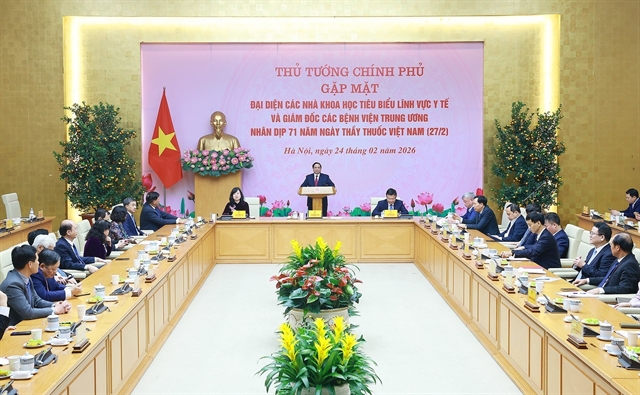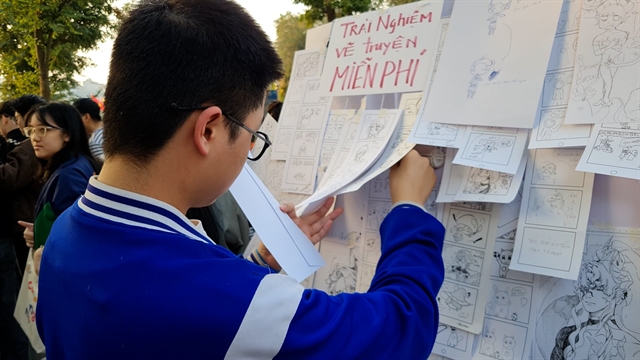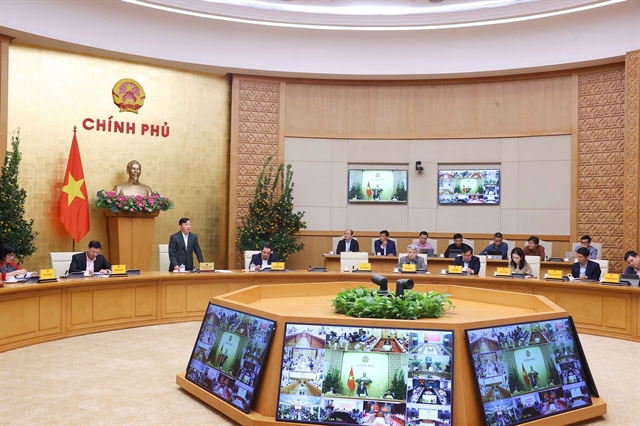 Society
Society
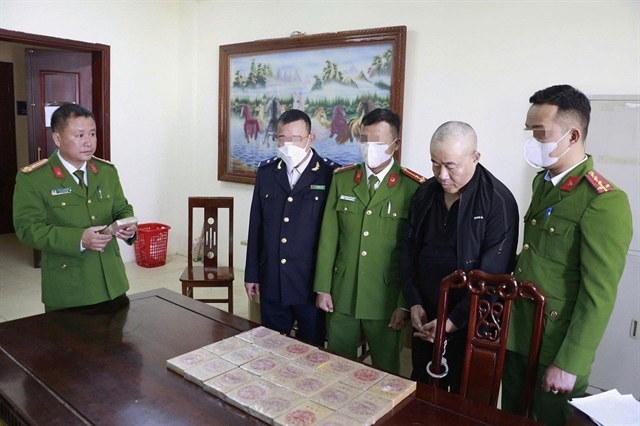
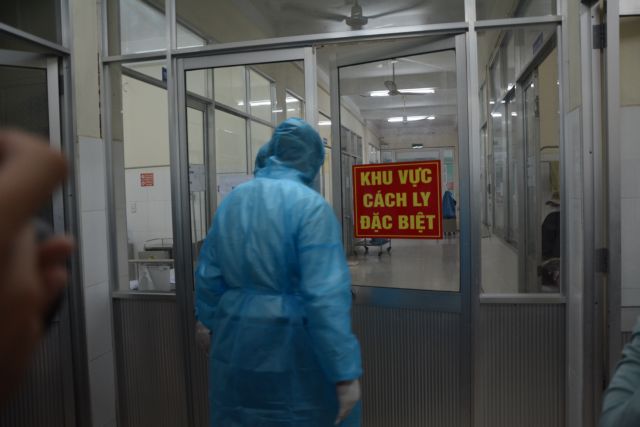
|
| A doctor at a quarantine site of a hospital in Đà Nẵng. Twenty-two foreigners are being monitored at the city’s Lung Disease hospital. VNS Photo Võ Dũng |
ĐÀ NẴNG — Twenty-two foreigners, including 20 Korean and two Thai tourists, have been kept under quarantine at Đà Nẵng’s Lung Disease Hospital since Monday.
Deputy director of the city’s health department Nguyễn Tiên Hồng confirmed the report to Việt Nam News yesterday, stating that all foreign tourists were being quarantined at the hospital and monitored for signs of coronavirus disease 2019 (COVID-19).
Hồng said the tourists would be kept at the site for 14 days, and they would leave the hospital after receiving health checks and having samples tested for the virus.
Doctor Phùng Định Thạnh from the hospital also said the Korean and Thai tourists would be staying at the hospital under the instructions of the city’s steering committee.
“They are all healthy,” he said.
The Korean and Thai tourists were on a flight from Daegu, the Republic of Korea (RoK), with 58 other Vietnamese students. They landed at Đà Nẵng International Airport on Monday.
The Vietnamese passengers were taken to quarantine sites in Đà Nẵng following a decision from the Government on quarantining all passengers on flights from COVID-19-affected areas.
One of them who is having fever was sent to Đà Nẵng’s Lung Disease Hospital.
Quarantine and sterilisation were strictly implemented by teams and medical staff at the airport and hospitals.
The city said 3,000 passengers had entered through the airport and seaport of Đà Nẵng on Monday. Of which, 1,315 passengers had to fill in health declarations.
The city’s health department said 38 people are being monitored at home, and they were all healthy.
It said 116 samples out of 165 cases from January to February negative tested for COVID-19.
Hospitals have released 155 people, including 33 foreigners.
Both Vietnamese and South Korean airlines have been operating daily flights connecting South Korean cities and Đà Nẵng since 2014.
Tourists from the RoK account for the second largest segment of foreign tourist arrivals in Đà Nẵng at 1 million last year.
As the South Korean government has risen the COVID-19 warning level to the highest, the Vietnamese Ministry of Health on Tuesday instructed local people's committees to quarantine people entering Việt Nam from the RoK.
Localities have to ask those entering Việt Nam from South Korea or going through South Korea before entering Việt Nam to fill in health declaration forms.
The health ministry asked all people found to have signs of fever, coughing and shortness of breath at border gates to be immediately quarantined at medical facilities and tested for the virus.
Travellers from or going through Daegu City and North Gyeongsang Province must be put under quarantine within 14 days of immigration.
Relevant agencies must report to local authorities people who entered Việt Nam from the RoK, especially COVID-19 affected areas, from February 9.
People returning from other South Korean areas which are not Daegu and North Gyeongsang are advised to monitor their health and go to healthcare facilities in case of symptoms.
The Ministry of Health also urged localities nationwide which are carrying out health check-ups to send interpreters to support border regions in the face of the acute respiratory disease caused by the SARS-CoV-2.
All cities and provinces have been instructed to issue health declaration forms for people entering Việt Nam from or transited in China or the RoK, the ministry said in a dispatch, as COVID-19 cases surge in the two countries and are likely to spread to other countries and territories, including Việt Nam.
The form is available in English, Chinese and Korean. However, most border gates face a shortage of staff capable of reading these languages, making it difficult for officials to screen cases coming from countries with COVID-19 outbreaks.
Departments and offices of external affairs in all provinces and cities have been asked to join local steering boards in the prevention and control of the disease.
Additionally, local authorities have been tasked with working with relevant agencies to send interpreters to border gates to support health examinations.
Health officials in border regions are requested to create optimal conditions for the interpreters to work there. — VNS


